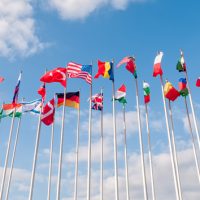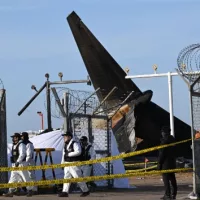
 iStock/Thinkstock(WASHINGTON) — After reports broke of President Donald Trump’s disparaging comments about Haiti and other African countries, the outrage overseas was swift — with governments demanding to know what the president really said and whether the U.S. would apologize.
iStock/Thinkstock(WASHINGTON) — After reports broke of President Donald Trump’s disparaging comments about Haiti and other African countries, the outrage overseas was swift — with governments demanding to know what the president really said and whether the U.S. would apologize.
Already, two top American diplomats have been summoned by their host countries — Earl Miller, the ambassador to Botswana, and Robin Diallo, the charge d’affaires to Haiti, the No. 2 in charge of the U.S. mission in the absence of an ambassador.
These diplomats and their colleagues elsewhere face a difficult challenge in defending the U.S.’s commitment to their host country without outright denying what the president said — something even the White House has not done, though Trump did deny he used “derogatory” language about Haitians in a tweet Friday morning. He did not, however, deny accounts from multiple sources either briefed on or familiar with the discussion who told ABC News the president’s comments extended to African countries as well.
So what is the State Department advising? According to internal guidance obtained by ABC News, the department is telling its diplomats to “reiterate that we have great respect for the people of Africa and all nations and our commitment remains strong.”
“Each Charge or Ambassador should note what a great honor it is to be in their post and how much they value the relationship with the people of the nation they are representing (use nation’s name),” the guidance reads.
Undersecretary of State Steve Goldstein said as much to reporters, telling diplomats to listen first to the concerns of the host country’s government before emphasizing that the U.S’s commitment to the country hasn’t wavered.
“Will they have to work extra hard? Yes, but that’s OK -– it doesn’t change what we do,” said Goldstein. “Our diplomats are committed to the nations they are serving and care deeply about the people.”
He added: “The president has the right to say whatever he chooses. That’s the advantage of being president. But we have an obligation to the people of that country –- that hasn’t changed. Nothing has changed.”
If a country asks for confirmation –- did the president of the U.S. say what he is reported to have said –- then U.S. diplomats “will report that back to Washington and we’ll provide appropriate guidance should that occur,” Goldstein said, declining to elaborate further.
There was some speculation Friday that the comments had already led to one diplomat’s resignation after news broke that the U.S. ambassador to Panama John Feeley had stepped down from his post.
But Feeley — a senior Foreign Service officer, retired Marine helicopter pilot and “one of the Department’s leading Latin America specialists,” according to the State Department — submitted his resignation on Dec. 27. In his purported resignation letter, obtained by Reuters, Feeley pointed to Trump as his reason for leaving.
“As a junior Foreign Service officer, I signed an oath to serve faithfully the president and his administration in an apolitical fashion, even when I might not agree with certain policies. My instructors made clear that if I believed I could not do that, I would be honor bound to resign. That time has come,” Feeley said, according to the news agency.
Goldstein would not confirm the letter, saying only that Feeley left for “personal reasons,” but said if the letter is authentic, Feeley is entitled to his decision.
“Everyone has a line that they will not cross. If the ambassador feels that he can no longer serve … then he has made the right decision for himself and we respect that,” Goldstein said.
Copyright © 2018, ABC Radio. All rights reserved.













